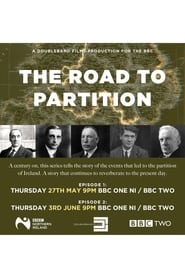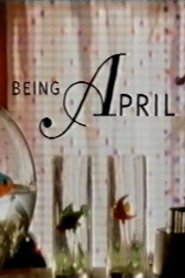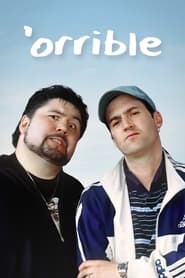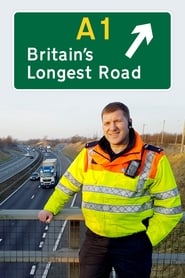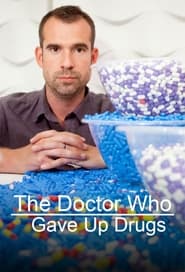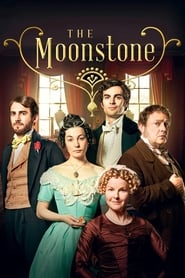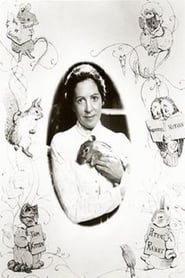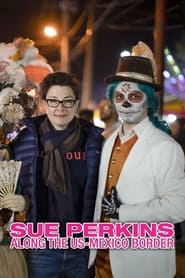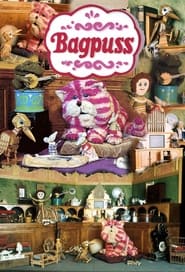Bbc One TV Series - Page 90
-
D-Day: The Last Heroes
2013
star 5Dan Snow examines how the Allied Forces planned and executed the D-Day landings, as surviving veterans tell the story of one of the most dramatic military operations in history. -
Even Better Than the Real Thing
2017
Some of the world's greatest tribute acts go head to head, performing songs made famous by music legends. -
Sitting Pretty
1992
star 6Sitting Pretty is a 1992 BBC television sitcom written by John Sullivan. The series starred Diane Bull, David Ashford and John Cater and was directed by Susan Belbin and Angela De Chastelai Smith. The series followed the travails of a woman whose millionaire husband dies suddenly. She discovers that her husband's will has left her penniless and she is forced to move back in with her parents and sister on their farm. The lead role was originally intended to be played by a male lead, but was changed to become the first Sullivan sitcom to feature a female lead since Just Good Friends. However, John Oliver notes that it is also remembered as the writer's first notable failure. -
The Road to Partition
2021
On the 22nd June 1921 King George V and Queen Mary arrived in Belfast for the official opening of the first Northern Ireland parliament. Fearful for their lives, they had come to a city scarred by bitter sectarian violence. The King’s visit to Belfast was the culmination of three centuries of history – and three years of political brinkmanship and brutal communal violence. The occasion marked the creation of the new state of Northern Ireland. A line had been drawn on the map – a new border that separated the north and south of the island. One hundred years on, this is the story of the dramatic events that led to the partition of Ireland. A story that continues to reverberate to the present day - and dominate relationships between the islands of Britain and Ireland. -
Being April
2002
star 4.5Three kids. Three dads. One mum. Mum is April (Pauline Quirke), a 39-year-old single mother living in Leicester, who has had three children by three different fathers. Richard (Victor McGuire), her husband since she was 18, is a plumber who still adores her. They separated years ago but never got round to a divorce. Eddie (Nicholas Gleaves) is a barman, with whom she had a fling nine years ago until, a week after moving in with him, she discovered they were both looking for Mr Right. Sunil (Nitin Ganatra) followed, sexy, young and rich. -
Love, Faith and Me
2023
Love, Faith and Me
2023
Love, relationships, family life and having children. Personal stories reflecting on the biggest milestones in life, as seen from the perspectives of different faiths. -
The Heart Surgeon
1997
star 2Alex Marsden is a handsome and celebrated cardiac surgeon with a champagne lifestyle. His two closest friends are Marcella and her husband Larry. Marcella and Alex are in the middle of an affair when Larry develops a heart problem. A heart bypass operation will save him and Larry wants Alex to perform it. -
Big Night of Musicals by the National Lottery
2022
Jason Manford hosts a celebration of musical theatre, full of showstoppers from the nation’s best-loved shows. -
'Orrible
2001
star 6'Orrible is a British television sitcom produced by the BBC. Broadcast in 2001, it was written by and starred Johnny Vaughan. Vaughan appears as a taxi-cab driver and wannabe small time criminal in Acton. Despite the BBC having high hopes and heavily promoting the series, it was panned by critics for the script and Vaughan's acting ability. It achieved very low viewing figures and ran for one series, and has never been repeated by the BBC. "Ultimately, it was shit" said Vaughan in a 2004 interview in The Stage. -
A1: Britain's Longest Road
2017
star 5.6Following the men and women who work around the clock on Britain's longest and most iconic road, ensuring the traffic keeps moving and the public is kept safe. -
The Doctor Who Gave Up Drugs
2016
A social experiment in which Dr Chris van Tulleken takes over part of a GP surgery and stops patients' prescription pills. -
The Moonstone
2016
star 5.4Charismatic adventurer Franklin Blake is on the most important quest of his life - to solve the disappearance of the priceless Moonstone and win back Rachel Verinder, his one true love. -
Celeb
2002
Celeb
2002
-
Ronni Ancona & Co
2007
Ronni Ancona & Co
2007
Ronni Ancona & Co is a comedy sketch show that aired on BBC One and began on 25 May 2007. The sketches all consisted of impressions of well-known celebrities amongst other comedy sketches of fictional characters created by Ronni Ancona. Phil Cornwell, Jan Ravens and John Sessions all starred in the series with Ancona. Bill Oddie also made a cameo appearance in the first episode. Fellow impressionist Alistair McGowan appeared in the first episode in a spoof of a perfume advertisement. -
Sue Perkins: Along the US–Mexico Border
2020
Sue Perkins goes on a journey along one of the most contentious borders in the world. -
Bagpuss
1974
star 6.7Bagpuss is a UK children's television series, made by Peter Firmin and Oliver Postgate from 12 February 1974 to 7 May 1974 through their company Smallfilms. The title character was, "An old, saggy, cloth cat, baggy, and a bit loose at the seams." Although only 13 episodes of the show were made, it remains fondly remembered, and was regularly repeated in the UK for thirteen years. In 1999 Bagpuss topped a BBC poll for the UK's favourite children's TV programme. -
Legacy of Murder
1982
Legacy of Murder
1982
Legacy of Murder is a British comedy television series which originally aired on BBC in six half-hour episodes between 16 February and 23 March 1982. A struggling London private detective and his assistant are hired by a lawyer to locate six people concerned with the inheritance of an eccentric aristocrat. It is also known as Emery Presents: Legacy of Murder. As he did on The Dick Emery Show, Emery portrayed several different characters. -
Moonacre
1994
-
The Billion Dollar Chicken Shop
2015
star 8The Billion Dollar Chicken Shop (also known as Inside KFC) is a 2015 British English three-part documentary television miniseries that premiered on BBC One. The series goes behind the scenes of the fast food restaurant chain KFC.



